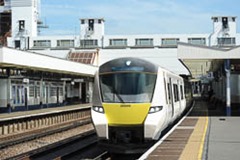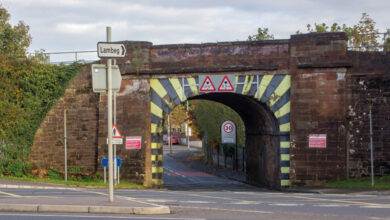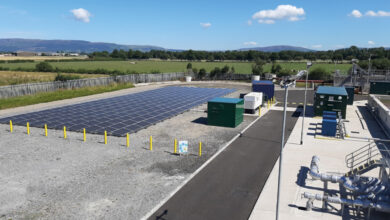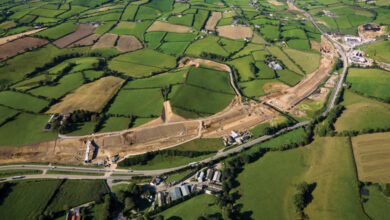Building public trust
 Independent technical advice is key in helping to build public support for infrastructure projects, according to the CBI’s analysis.
Independent technical advice is key in helping to build public support for infrastructure projects, according to the CBI’s analysis.
The CBI’s Building Trust report, published in April, emphasises that a relevant case for infrastructure development must be made to convince the public – and therefore to ensure that development takes place. The report is particularly timely as pre-election lobbying gets under way.
Ipsos MORI was commissioned to poll 1,016 individuals cross Great Britain and hold three focus groups: in London, Rugby and Bradford. Its research found three main factors that make it difficult for government and business to build support for projects:
1. the public does not believe the “lights will go out” narrative;
2. the local benefits of national projects are “not articulated properly”; and
3. people are not convinced by the voices that currently champion developments.
“If we are to avoid our country’s infrastructure reaching its limits, we cannot delay,” the report warns starkly. “We need to spark a public debate on the nation’s needs long before our infrastructure starts to fail.”
Businesses fear delay – as this impacts on their growth plans – while the public fears disruption. New projects or upgrades are generally viewed as “nice-to-have” rather than necessary. Indeed, the short-term disruption is seen as outweighing the long-term gain.
Citizens tend to see transport infrastructure improvements as more important than energy, water and waste management – roads and railways are more visible than pipes and power lines. In general, the public tended to want decisions to be delayed so that they could have their say even if that had an impact on the nation as a whole.
The CBI concluded that public debate should inform infrastructure decisions well in advance rather than form a reaction after decisions are taken. This implies that developers should “tell a story the public can support” with a view to getting a decision. The National Grid’s Powering Britain’s Future campaign is highlighted as good practice.
Why support?
High profile projects “are often held up by the process of responding to public challenge as much as the challenges themselves.” Polling indicated that quality of life for local people (47 per cent) and local job opportunities (44 per cent) were the two biggest factors that would persuade people to support a project. The local environment (37 per cent) and the individual’s quality of life (35 per cent) were cited as the next important reasons while local house prices (22 per cent) and the national economy (20 per cent) ranked lowest.
People were most likely to trust themselves or those of a similar mind to represent their interests (42 per cent). Councillors (33 per cent) appeared to be more trusted than the local MP (24 per cent). The difference between success and failure was often down to the quality of local, rather than national, debate hence the need to explain local benefits e.g. jobs.
This work needs to be done “before rumours start to circulate”. Yorkshire Water, for example, consulted early and extensively before building a new waste water plant near Scarborough and asked local people to influence opinion in favour of the project.
“At the same time, we also need to be honest and upfront about the difficulties and disruption that development can bring,” the report continues. People are often willing to accept that they will not get their way if they know that their voice has been heard. Local politicians are encouraged to emphasise and seek to maximise the positive aspects of infrastructure projects.
 The people and organisations which are “left to make the case” to local communities are also “the least trusted to do”. The report suggests that gaining public support requires a consistent message and a neutral, credible voice that can outline independent evidence about both the challenges faced and the possible solutions open to the UK.
The people and organisations which are “left to make the case” to local communities are also “the least trusted to do”. The report suggests that gaining public support requires a consistent message and a neutral, credible voice that can outline independent evidence about both the challenges faced and the possible solutions open to the UK.
Most developers will invest significant sums in explaining a project. When difficulties emerge, government ministers are sometimes asked to “step in to lend support” although this is often too late and can involve mixed messaging.
Public trust in developers and ministers is at low levels: standing at just 15 per cent and 6 per cent respectively. Campaign groups are only slightly more trusted (22 per cent) but a majority (54 per cent) of the public trust “technical experts”. These can include scientists, economists and others with a specialist knowledge – as long as they are independent and can explain the pros and cons.
“There will always be a role for government and business in making this public case, but the research suggests something more is needed,” the report states.
Interestingly, it also finds that 64 per cent of the public would prefer technical experts to make decisions while only 22 per cent said that this should be done by politicians.
This concurs with the idea of a ‘national infrastructure commission’ proposed in the Armitt review of infrastructure policy carried out for Labour last year.
However, it also raises questions about democratic accountability. Scientists and economists may be seen as more independent but they also bring their own views to the table and, unlike politicians, cannot be voted out of office.
An infrastructure forum in practice
The loudest voices, often raising the greatest fears, usually dominate debates. The CBI wants to see more balanced and informed discussion taking place. In France, the Commission Nationale du Débat Public (www.debatpublic.fr) is responsible for generating structured and intensive dialogue at a local level. The commission does not make a judgement on the project. It allows the contracting authorities to explain and make the case and avoids having open-ended debates. Instead, the focus is on having a set time (e.g. three months) in which all the relevant evidence and views can be presented.





